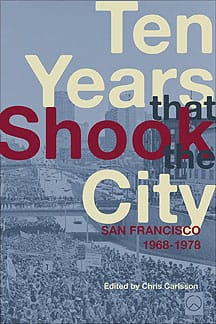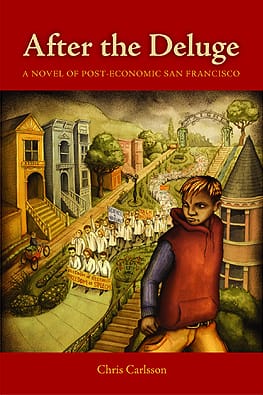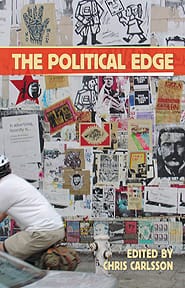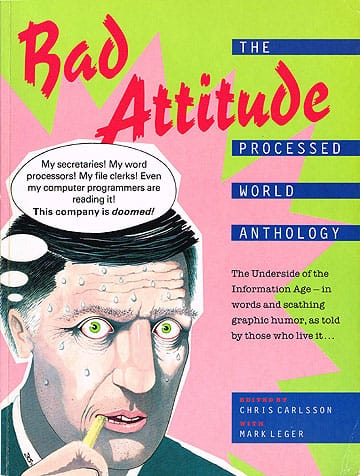Recent Posts
-
And Yet, We Go On
April 22, 2024
-
It IS Happening Here
February 16, 2024
-
General Ludd to General Intellect
January 11, 2024
-
Temporal and Geographic Edges
December 26, 2023
-
The Root of All Evil
October 13, 2023
-
Post-Pandemic Melancholia . . . Same As It Ever Was?
September 3, 2023
-
Chronicle of Deaths Foretold
June 24, 2023
-
Reparations is the Least We Should Do
May 11, 2023
-
We Are Not Alone
April 9, 2023
-
War and Anti-War
February 22, 2023
|
My brief entry on Chile yesterday was prompted at least in part by this fascinating piece by Ariel Dorfman at Tomdispatch. Dorfman is a well-known Chilean who fled Pinochet’s Chile and became a renowned writer. He is recounting a speech he gave at the MLA, a speech in which he claimed the speech itself had been seized by Homeland Security on his entry into the U.S. In fact he was using that idea as a way of illustrating the absurdity of our era, the insanity of ‘security’ as it is defined and practiced by the small-brained employees of the government. But the folks at the MLA conference mostly didn’t get his crafty allusions and satirical references that he was sure would reveal his purpose. Instead, many of the people there, many of them hopeful MFAs and Ph.D.s seeking university employment, expressed outrage and solidarity with him, and some were quick to panic at what they feared would be their own near-term fate.
Dorfman laments our loss of satire, the incredible heights of pure insanity that have completely exceeded our ability to parody. The behavior of the Bushists and their coterie are so far over the edge of acceptability or sanity, that trying to lampoon them only sounds like more of what we are becoming all too used to hearing as commonplace events. His experience at the MLA underscored too how ready most of us are to believe that the all-powerful government is already on to us, just about to break down our door or seize us at the airport. The NSA eavesdropping scandal, and the lawsuits just filed by the ACLU and the Center for Constitutional Rights, reinforce a widespread, believable paranoia that everything we say and do is being observed by a nearly omniscient (and ill-intentioned) government.
But the government is enormously incompetent, as are most businesses and bureaucracies. Attributing the kind of power to them that this kind of paranoia does says more about individual powerlessness than any real capabilities of the authorities. It’s a Wizard of Oz fantasy not based on any kind of truth or real experience. The severe erosion of truth and accountability is a crucial foundation for this fantasy of governmental omniscience.
Continue reading Parody and Paranoia
On Sunday Michelle Bachelet was elected the new president of Chile, which is getting a certain amount of enthusiastic cheering from lefty-types like Amy Goodman and probably the left press here in the U.S. No doubt she’s preferable to the billionaire rightwinger she defeated, but she’s far from an inspiring politician, having been the Defense Minister during the past years’ build-up of the Chilean military, and having overseen the dispatch of troops to aid the rightwing takeover of Haiti during the past year.
But she does represent a curious bit of history, having herself been imprisoned during the 1973 coup d’etat that overthrew the elected government of Salvador Allende and installed the brutal dictator Augusto Pinochet. It was one of the first times I was personally aware of the hypocritic and vicious foreign policies of the U.S. beyond the already all-too-obvious horror of Vietnam.
I was in high school in Oakland at the time. KSAN-FM radio was a seminal underground rock station, long before corporations completely took over the FM bandwidth too, and had an awesome news department. Dave McQueen did much more than ‘rip ‘n read’ in those days. He really told us what was happening (KSAN also broadcast the street drug report regularly, as well as Scoop Nisker’s hilarious “Last News Show” that followed the insanity of the Nixon administration all the way to its inglorious demise).
Continue reading History circling through Chile
Following my recent posts on the coming war with Iran, there’s a thoughtful post on the UK Guardian by David Hirst, a long-time correspondent in the Middle East. It explains some of the consequences of the US failure in Iraq, and underscores how volatile the coming months and years will be, regardless of the twists and turns of the US occupation and ensuing withdrawal…
I finally visited Jonathan and Emily last night at the Magic Funk Palace, and had a lovely dinner followed by that ultimate San Francisco treat, an outdoor hot tub! Yowza! Talking over dinner, we skated over to “Precarity” and the numerous related themes that are percolating rather more intensely in Europe than in North America, but are slowly rising to the surface here too. I got my copy of Mute Vol. 2#1, and an email to join the Mute community, where these issues get a lot of play. The new issue is called “Underneath the Knowledge Commons” and the editorial “When America Sneezes” is a good place to start discovering the ‘strange loops’ that link us across the planet in a fight over what’s left of the Commons.
Coincidentally I’m brushing up on my 1934 General Strike history by reading David Selvin’s A Terrible Anger, in which he describes the “shape-up” that preceded the emergence of the union-controlled hiring hall that was achieved after the Big Strike. Longshoremen would work a continuous 18 hours followed by days without work, eat steaks one day and go hungry the next three. Talk about precariousness!
That underscores the difficulty of the concept, its all-encompassing vagueness. Because people around the world, especially in the Global South, have always been living precariously. Over a billion people are near starvation, and clean water, basic infrastructure, power, transit and communications are all generally unavailable to around 40-50% of the world’s population.
The fact that a lot of us empire-dwelling, affluent, immaterial laborers are waking up to our precarious state, and that precariousness is a spreading reality for all the former self-imagined “middle class” and “upper middle class” folks, is important to note. But it smacks of the navel-gazing narcissism that cripples our capacities for empathy and solidarity that “we” think we’re somehow in new territory. It’s normal for most people, throughout most of history, to be dangerously precarious in terms of survival and well-being.
Continue reading Precarious Life
|
|











